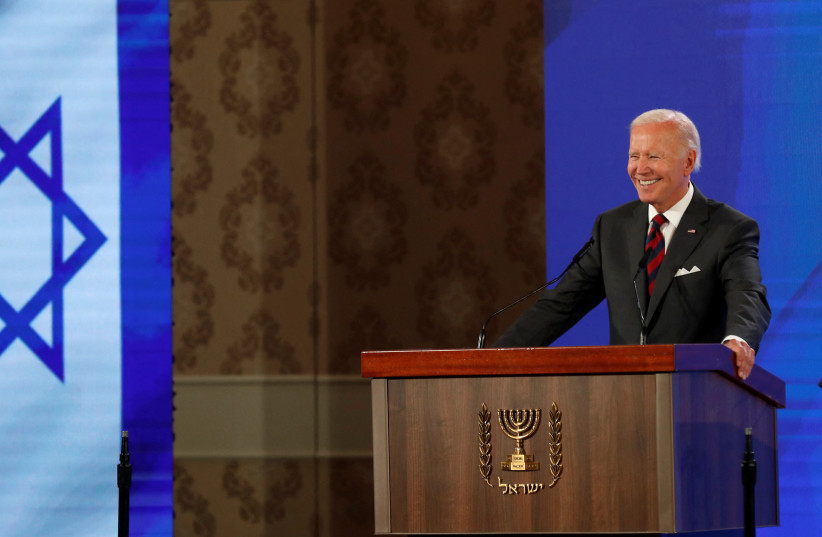A new survey by the Pew Research Center found that 87% of Israelis polled have a favorable view of the US. For the Fourth of July, The Media Line spoke with foreign policy experts and Israeli citizens to hear their thoughts on the US and its role in global affairs.
For more stories from The Media Line go to themedialine.org
“The relationship that Israel has with the United States is not based upon religion,” said Dr. Yonatan Freeman, a lecturer in the Political Science Department of the Hebrew University of Jerusalem. “It’s mainly a relationship based on values and peoples.”
Freeman also said the US had supported Israel since its inception and funded its military for decades, further boosting public support.
“Everybody knows the US is a rich country,” said Israel resident Shelly. “It has an interest to support Israel because we’re kind of advancing Western culture in the Middle East.”
“I think we get pretty good support,” said Tel Aviv resident Hillel. “The US is a living country with a great tradition of democracy and a lot of good things are going on over there. So people [in Israel] are kind of inspired by what the US is doing.”

Military support is part of a long history of US aid to Israel and helps explain why the Israeli public has continued to back the US through multiple presidential administrations. In 2019, polls found that 71% of Israeli respondents had confidence in then-President Donald Trump’s foreign policy, a slightly higher figure than the 68% who reported confidence in President Joe Biden’s approach to global affairs.
Biden's hands-off approach to Israel may help his approval rates
Freeman says President Biden’s focus on domestic policy and his hands-off approach to Israel could also be helping his approval rates.
President Biden “is mainly focused on issues unrelated to Israel,” Freeman said. As a result, the Biden Administration has not dwelt heavily on the Israeli government’s controversial proposals to overhaul the country’s judiciary or its military operations in the West Bank and Gaza.
Freeman says President Biden’s unwillingness to loudly criticize Israel has been reflected in the Israeli media, which plays a significant role in shaping the public’s perception of the US.
“I think that looking at the media here, it has not been very critical of Biden,” Freeman said. “I think he's seen in a positive light here in the media.”
Some of the Israelis that The Media Line spoke with had no strong opinion on President Biden or criticized his leadership for reasons unrelated to Israel or the Middle East.
“I don’t think he’s too involved with Israel,” Shelly said. “I just think he understands that Israel is important for the US.”
“I think he’s too old,” Israel resident Diane said. “I think you need a younger, strong—but not strong like radical, extreme right or something—a president that knows politics, that understands what’s going on in America.”
Freeman says Biden may also enjoy strong approval ratings in Israel because he has maintained popular Trump Administration policies, such as moving the US Embassy to Jerusalem and supporting the Abraham Accords normalization deals between Israel and several Arab countries.
And some Israelis, Freeman noted, disagreed with President Trump’s domestic policies.
“If you look at social types of policies, Israel is very much more liberal,” Freeman said. “When it comes to health insurance, when it comes to women's rights and different things, some in Israel would find that maybe America is a little bit too conservative.”
A more liberal Israeli perspective on social policy has helped President Biden’s standing with many Israelis. Some, moreover, view the current president as a protector of Israeli democracy, while others feel he is a more calming presence on the world stage.
“Our situation is awful; we are not a democracy anymore,” said Israel resident Esther. “We need the United States and Biden.”
“The character he presents makes a good impression on people, kind of like this calming grandpa,” Shelly said. “He gives some a calm feeling. … People chose him, I guess, because he was better than Trump.”
Patrick Doyle is a recent graduate of San Diego State University and an intern in The Media Line’s Press and Policy Student Program.
